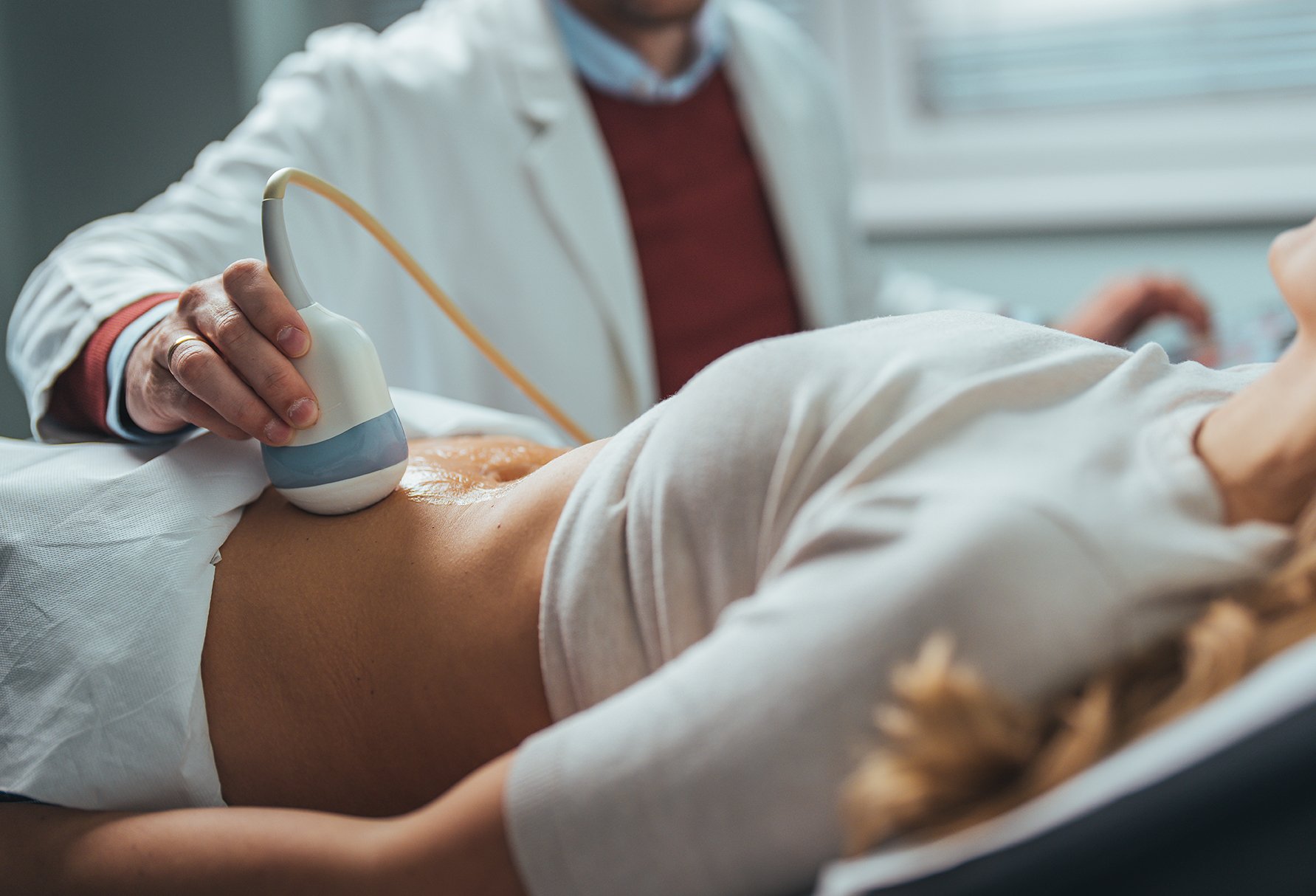
Urogynecology
Doctors called Urogynecologists receive special training and certification to diagnose and treat women with pelvic floor disorders — and we have one of these unique specialists, Dr. Kevin Breniman. Conditions can arise that affect the female pelvic organs and bladder, as well as the muscles and connective tissue that support these organs. A Urogynecologist develops surgical and non-surgical treatment plans to address these issues.

Urogynecology FAQs
WHAT DO UROGYNECOLOGISTS TREAT?
Urogynecologists can treat many issues, helping patients stay healthy, active and comfortable. Some of the most common problems treated by urogynecologists include:
Unexpected urinary leaking, known as urinary incontinence
Uncontrolled bladder leaking, known as overactive bladder
Dropping of the vagina, uterus, bladder and rectum, also known as pelvic organ prolapse
WHAT ARE SOME OF THE COMMON TERMS IN UROGYNECOLOGY?
We are always happy to answer your questions and explain any unfamiliar wording! Here are a few common terms we might use:
Stress urinary incontinence, the unintentional loss of urine during physical movement or activity
Urgency urinary incontinence, a sudden and strong need to urinate
Pelvic organ prolapse, when the muscles and tissues supporting the pelvic organs become weak or loose
Uterine prolapse, when the uterus descends toward (or into) the vagina
Cystocele, also known as a prolapsed bladder, is when a woman’s bladder bulges into her vagina
Rectocele, when the front wall of the rectum bulges into the back wall of the vagina
WHAT ARE SOME OF THE COMMON SURGERIES IN UROGYNECOLOGY?
We perform many procedures and surgeries for our patients, including:
Urethral slings
Vaginal repairs
Laparoscopic prolapse surgeries
Hysterectomy
InterStim procedure
Botox procedure
Anterior and posterior repairs
WHAT IS FEMALE PELVIC MEDICINE AND RECONSTRUCTIVE SURGERY (FPMRS)?
The American Board of Medical Specialties approved Female Pelvic Medicine and Reconstructive Surgery (FPMRS), also known as urogynecology, as a certified subspecialty. The first doctors to be board-certified were in 2013. Physicians having the FPMRS subspecialty have additional years of training, certification and examination in urogynecology and have passed the licensing sub-specialty examination by the American Board of Obstetrics & Gynecology. Dr. Breniman is one of the few physicians in Arkansas board certified in FPMRS.
Urinary Incontinence
WHAT IS URINARY INCONTINENCE?
There are three main types of urinary incontinence. Stress incontinence occurs when urine leaks out when any physical exertion puts increased pressure on the bladder and causes urinary leaking. This happens due to weakened or damaged muscles being unable to hold urine. Urge incontinence is when you feel a strong urge to urinate even when your bladder is not full. Mixed incontinence displays symptoms of both types.
Other symptoms include painful urination, leaking urine while sleeping and waking up from your sleep to urinate.
WHAT CAUSES URINARY INCONTINENCE?
Stress and urge incontinence can be caused by childbirth, hormonal changes leading up to or following menopause, urinary tract infections, diuretic medications, or excessive caffeine or alcohol consumption.
WHAT ARE MY TREATMENT OPTIONS?
Lifestyle changes such as weight loss and elimination of bladder irritants
Physical therapy
Devices such as a pessary to help support pelvic floor issues
Medications
Surgeries such as slings, colposuspension and sacral neuromodulation
Simple procedures such as PTNS (percutaneous tibial nerve stimulation) and botox bladder injections
If you are experiencing any of these symptoms and would like to speak to our board certified urogynecologist, Dr. Kevin Breniman, please call and schedule an appointment. You can also watch Dr. Breniman discuss urinary incontinence for a more in-depth understanding.
Interstitial Cystitis
WHAT IS INTERSTITIAL CYSTITIS?
Interstitial cystitis is a chronic or long-term pain associated with urinary symptoms like discomfort, pressure, tenderness or pain in the bladder, lower abdomen and pelvis area. For more information, go to IC-Network.com or schedule an appointment with our urogynecologist Dr. Kevin Breniman.
WHAT ARE MY TREATMENT OPTIONS?
Diet modifications
Bladder training
Physical therapy
Bladder instillation
Bladder hydro-distension
Surgery
If you are experiencing any of these symptoms and would like to speak to our board certified urogynecologist, Dr. Kevin Breniman, please call and schedule an appointment.
Details & Services
STRESS INCONTINENCE
Stress incontinence is the leaking of urine during physical movement and activities such as coughing, sneezing, running or heavy lifting. These activities put stress on your bladder and, if weakness is present, unexpected urination can occur. If you have stress incontinence, you may feel embarrassed, isolate yourself or limit your work and social life, especially exercise and leisure activities. We can work with you to prevent this frustrating urine loss.
PELVIC PROLAPSE
Pelvic organ prolapse occurs when the areas around the vagina weaken and the organs “fall” or relax. These organs include your bladder (cystocele), uterus (uterine prolapse), vagina (vaginal vault prolapse), small bowel (enterocele) and rectum (rectocele). This often leads to feelings of heaviness in the vagina, tissue coming out of the vagina, discomfort, bladder change and other problems. As women age, pelvic organ prolapse and other pelvic floor disorders become more common, and some women develop pelvic floor disorders following childbirth. Dr. Brenimen is trained to diagnose and treat pelvic prolapse.
UTERINE PROLAPSE
Uterine prolapse occurs when the pelvic floor support and ligaments stretch and weaken, providing inadequate support for the uterus. The uterus then slips down into, or protrudes out of, the vagina. Uterine prolapse can happen to women of any age, but it often affects postmenopausal women who have had one or more vaginal deliveries. Our board-certified physician is trained to provide non-surgical and surgical care for this condition. We specialize in treating this problem and partner with women in choosing the treatment that is right for them.
BLADDER PROBLEMS
Bladder problems can include urgency, frequency, incontinence (leakage of urine), interstitial cystitis and painful urination (dysuria). These problems are often difficult to live with and can affect a women’s ability to live the life she desires. But help is available! We have a bladder specialist and treatment pathways in place to ensure each woman’s needs are addressed and followed closely.
THE ARKANSAS UROGYNECOLOGY CENTER AT CORNERSTONE CLINIC FOR WOMEN
Dr. Breniman founded the Arkansas Urogynecology Center at Cornerstone Clinic for Women to meet the needs of women with disorders of the pelvic floor. This center is built upon the expertise of Dr. Breniman who is board-certified in Female Pelvic Medicine and Reconstructive Surgery and has been focusing on Urogynecologic disorders for over 13 years. Kristin Garcia, PA-C and Heather Jones, PA-C complete the team of specialized practitioners to join Dr. Breniman in delivering the highest level of care and sensitivity to patients with a full range of disorders of the pelvic floor.

Nitrous Oxide is Now Available
Less anxiety, more comfort!
We now offer nitrous oxide for patients who would like additional support for anxiety or pain management during procedures or pelvic exams. This is the same fast-acting sedative many people have had during dental procedures. Results wear off quickly, so patients can safely drive soon after.
Pro-NoxTM is a self-administered, quick-onset pain management option, giving the patient complete control. It is "out of your system" within minutes of discontinuing, so you can regain complete mental and physical function quickly.
Possible side effects include dizziness, nausea, light-headedness and unsteadiness. Wait 10 minutes after treatment to get up or drive.
Nitrous oxide is an elective service not covered by insurance. The cost is $75, cash pay only.


